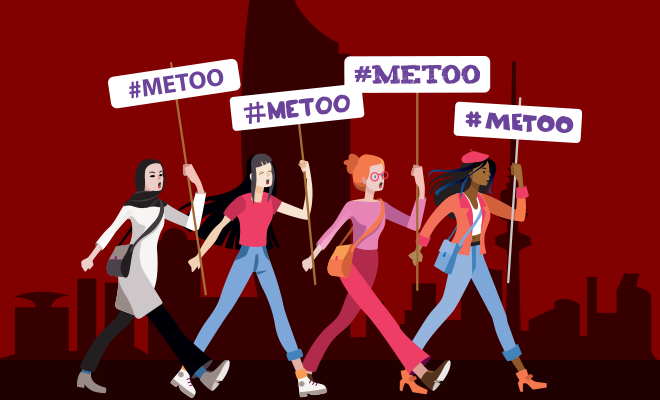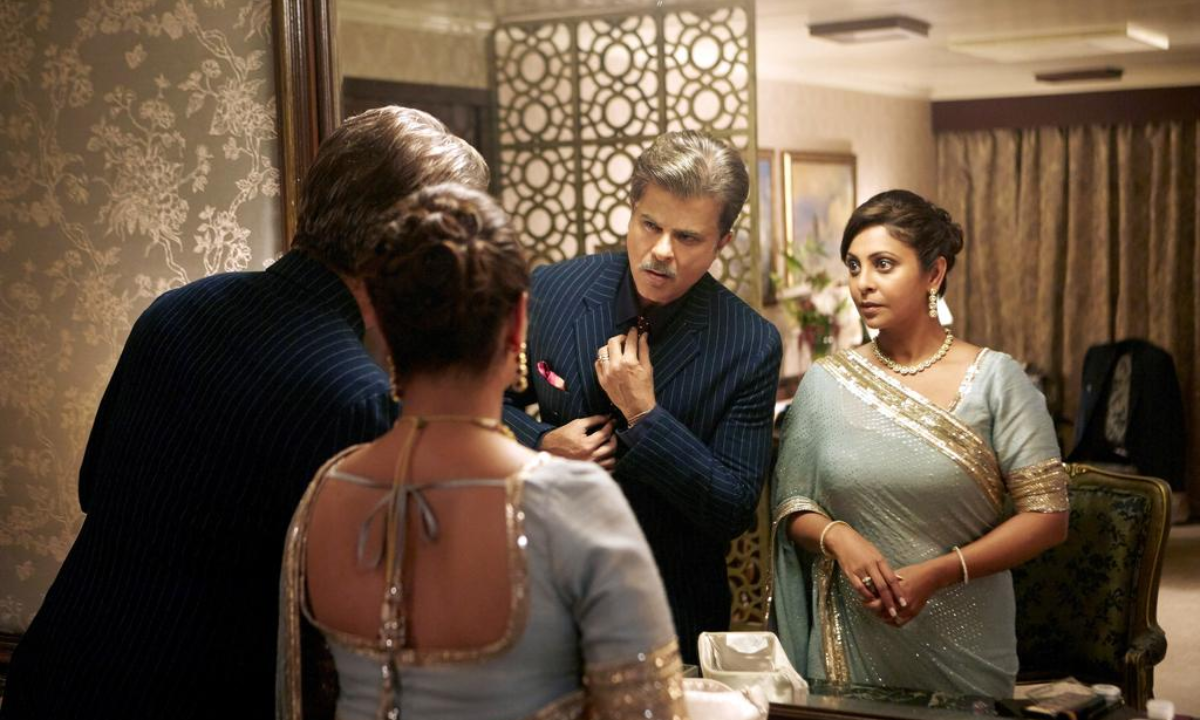In Kuwait, A Fashion Blogger’s Protest Against Harassment Has Sparked Off An Entire Movement

Let’s talk about the fact that living as a woman in a world that is extremely male-oriented come with a thousand various risks. From harassment to rape, for some, merely walking down the road is a nightmarish ordeal. This is the condition in most places around the globe. However, it’s not a secret that, compared to the rest of us, women living in the Middle East probably have it way worse. Despite all efforts by women and activists, women’s safety or women’s rights are two completely negligible concepts. That being said, the women haven’t given up. They’re trying to overthrow the sub-culture that makes it okay for men to repeatedly harass women. Recently, in a campaign sparked by a fashion blogger, the women in Kuwait are defying societal norms and breaking the culture of “shame” to speak up about the harassment they go through daily. We love that they are finally speaking up!
Last week, Kuwaiti fashion blogger Ascia Al Faraj, uploaded a fiery video wherein she spoke about the “problem” that exists in Kuwait. She said that every time she goes out, she is either harassed or sees a woman being harassed on the street. She posted this heartfelt video after a vehicle tried to speed up to scare her while she was walking towards her own car. This sparked a nation-wide campaign and hundreds of women poured in with their own testimonies and horrid experiences with sexual violence, harassment and abuse.
In the video, Ascia said, “Do you have no shame? We have a problem of harassment in this country, and I have had enough.” This was extremely gutsy of her but it seemed like a video talking about the rampant harassment was exactly what Kuwait’s women needed.
View this post on Instagram
In fact, after her video went viral, radio and TV shows have hosted several activists, academics and lawyers to talk about this culture of harassment. Even the US Embassy in Kuwait also sent out a tweet in support of this campaign.
The US Embassy also featured an illustration of three women, one unveiled, one with a headscarf and one with her face covered. The slogan read, “Don’t harass her”.
After watching Ascia’s video, Shayma Shamo, a 27-year-old doctor, launched an Instagram account called “Lan Asket”. This phrase is Arabic for “I will not be silenced”. Dozens of women shared their experiences with harassment and abuse on this Instagram account. Shayma featured these experiences and it has now become a nation-wide movement.
Speaking to AFP, Shayma said, “As soon as I opened the account, the messages started to pour in from women and girls that have experienced verbal, physical and sexual harassment.” She further added, “Silence is no longer an option. We must speak up, unite and defend each other because what is happening is unacceptable.”
It’s important to remember that the women who are sharing their experiences online are fighting against the age-old patriarchal culture of shaming. The Arabic word for shame is ‘ayb’ and it’s a word that these women have been hearing since childhood. It’s staunchly believed that women talking about or reporting harassment brings shame to the family.
Also Read: This Kuwaiti Beauty Blogger Put Up A Picture With A ‘Blackface’ And Sees No Problem With It. Wow, It’s A New Low In Racism
View this post on Instagram
Shayma said, “Going to the police station is ‘ayb’. Talking about harassment is ‘ayb’” Further adding, “As soon as the woman starts talking about being harassed, the questions from family members start: What were you wearing? Who were you with? What time was it?”
This social media campaign is exactly what the women needed to push past these boundaries. I am glad they are fighting against not only the harassment but also the culture of shaming women. In Kuwait, a law against gender-based violence exists. But what good is that law if merely talking about harassment is considered taboo? However, Kuwaiti women are not the prime targets for this kind of incessant harassment. Women from other countries, who live in Kuwait, are the most vulnerable.
In the video, Ascia said that she had received “intense stories” by Indian, Pakistani and Filipina women who were living and working in Kuwait. She said, “The expat community here is extremely vulnerable and are sometimes harassed at a level that Kuwaiti women will never understand.”
Even activists have emphasised that women from other countries, who make up a large portion of Kuwait’s population, are more likely to be subjected to assault and abuse. Hopefully, now with all this online support, the authorities will be forced to take some action.
Obviously, there is a section of the population who is extremely uncomfortable with women speaking out against harassment. This movement, like most movements involving women’s rights, has faced a ton of backlash from the more orthodox people in the country. These people believe that women must simply dress more conservatively to avoid harassment and assault.
Okay, what will it take for people, everywhere, to understand that despite what women are wearing or what time of day it is or who they are with, harassment will go on until the men are not stopped and properly educated?
That being said, we are extremely glad that these Kuwaiti women are finally speaking out against harassment.
https://thehauterfly.com/lifestyle/madras-high-court-chief-justice-banerjee-zero-tolerance-towards-sexual-harassment/

















